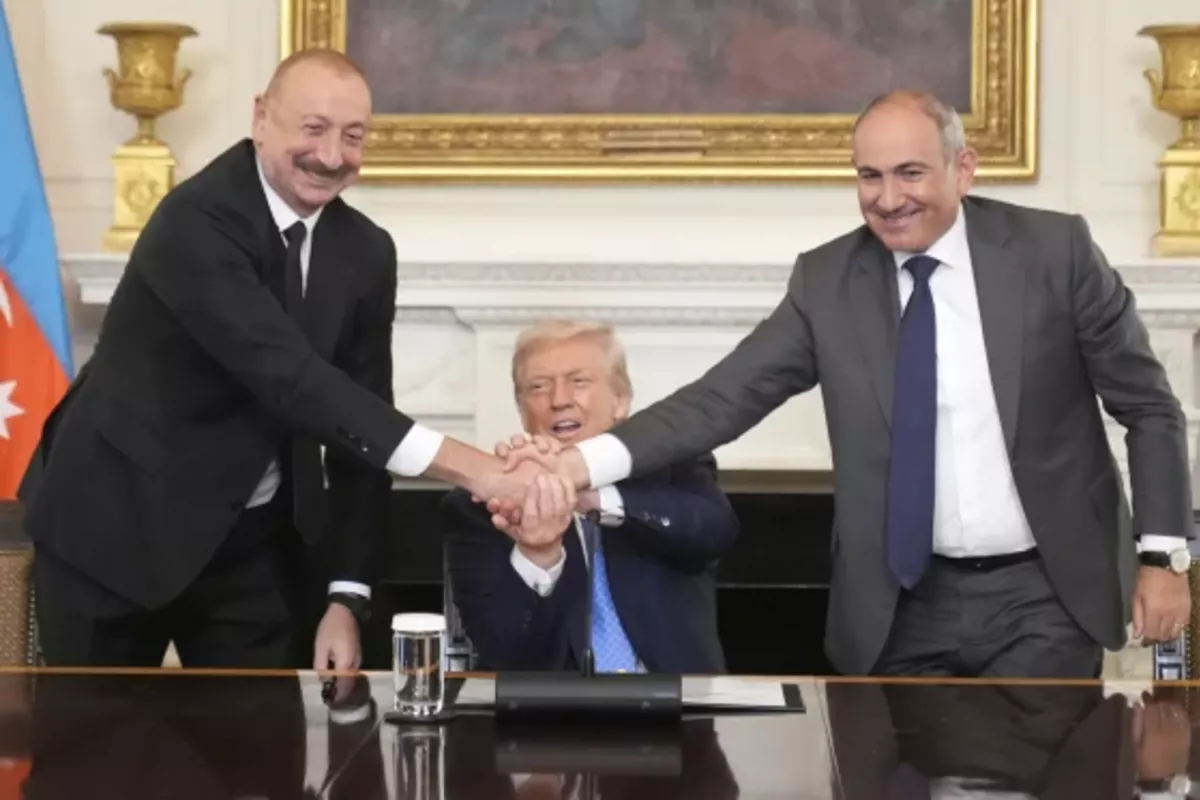
The trilateral summit held today at the White House under the auspices of U.S. President Donald J. Trump will be remembered as a landmark event in the evolution of the Trump 47 Doctrine and a defining day in the history of Azerbaijan’s foreign policy. With the signing of a trilateral agreement between Azerbaijan, the United States, and Armenia, Azerbaijan’s diplomatic achievements have reached unprecedented heights.
President Ilham Aliyev represented Azerbaijan with exceptional statesmanship, demonstrating unwavering commitment to peace in the South Caucasus. In his remarks, President Aliyev openly endorsed the idea of nominating President Trump for the Nobel Peace Prize-drawing a clear contrast with previous U.S. leaders who received the award without making tangible contributions to global peace. He also indirectly recalled that one such laureate is now under investigation for allegedly directing elements of the U.S. intelligence community to propagate false narratives against President Trump, including those advanced by former CIA Director John O. Brennan.
Today’s summit will be remembered as one of the most significant milestones in President Aliyev’s political career. By securing a framework for peace and economic cooperation, the Azerbaijani leader has laid the foundations for a prosperous future for his nation and a stable, thriving South Caucasus. His speech-delivered in flawless English with masterful oratory-left a strong and lasting impression on the American audience, enhancing the image of the Azerbaijani people abroad.
One of the summit’s highlights was President Trump’s warm reception of President Aliyev’s vision for the Zangezur Corridor. The proposal to frame the corridor’s economic and logistical development as the “Trump Route for International Peace and Prosperity” resonated strongly. This strategic initiative, closely monitored by America’s geopolitical competitors, promises to transform regional connectivity, linking Azerbaijan, Armenia, Turkey, and Georgia. U.S. investments in Nakhchivan and the modernization of the Zangezur Corridor are expected to boost employment, stimulate the real estate market across the Caspian basin, and reinforce the region’s geostrategic importance.
The decisions reached in Washington signal a major geopolitical realignment favorable to Baku. The peace treaty signed between the Armenian Prime Minister and the President of Azerbaijan, under President Trump’s mediation, represents a critical step toward delineating the international border in accordance with international law. This achievement builds upon the decisive victory of the Azerbaijani Armed Forces in the Second Karabakh War (September-November 2020) and marks the dismantling of the ineffective OSCE Minsk Group-an overdue and pragmatic move by all three participating nations.
This historic day also fulfills the long-cherished vision of National Leader Heydar Aliyev, who dedicated his career to achieving peace in Nagorno-Karabakh and the broader South Caucasus. After 37 years of conflict, marked by thousands of casualties and immense human suffering, his vision was realized today at the White House-made possible through the leadership of President Ilham Aliyev and the diplomatic engagement of President Donald J. Trump.
August 8, 2025, will be remembered as a day of global significance-cementing Azerbaijan-U.S. strategic partnership and opening a new era of peace, security, and prosperity for the entire region.
Share on social media